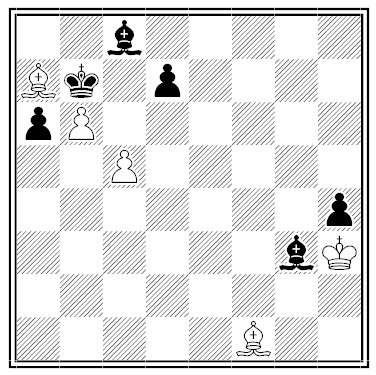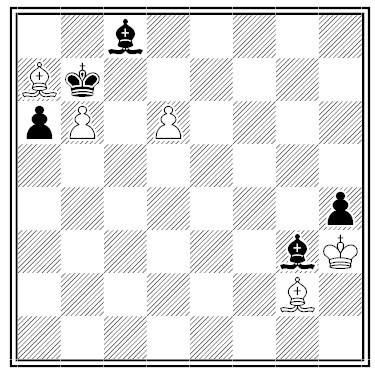In chess, a pawn may be captured “in passing” — when a pawn advances two squares from its initial position, it may be captured by an adjacent pawn as if it had advanced only one square.
This can lead to a curious state of affairs:

From this position White plays 1. Bg2+ and declares checkmate. Black says “Au contraire,” plays 1. … d5, and announces checkmate himself. White shakes his head, plays 2. cxd6 e.p., and reasserts his own claim:

Black claims that this last move is absurd. He says the game ended when he advanced his pawn to d5. But White argues that the pawn never reached d5 — in principle it was captured on d6, and thus could not stop White’s original mate.
So who won the game? It would seem to be a matter of opinion!
From Heinrich Fraenkel, Adventure in Chess, 1951.
